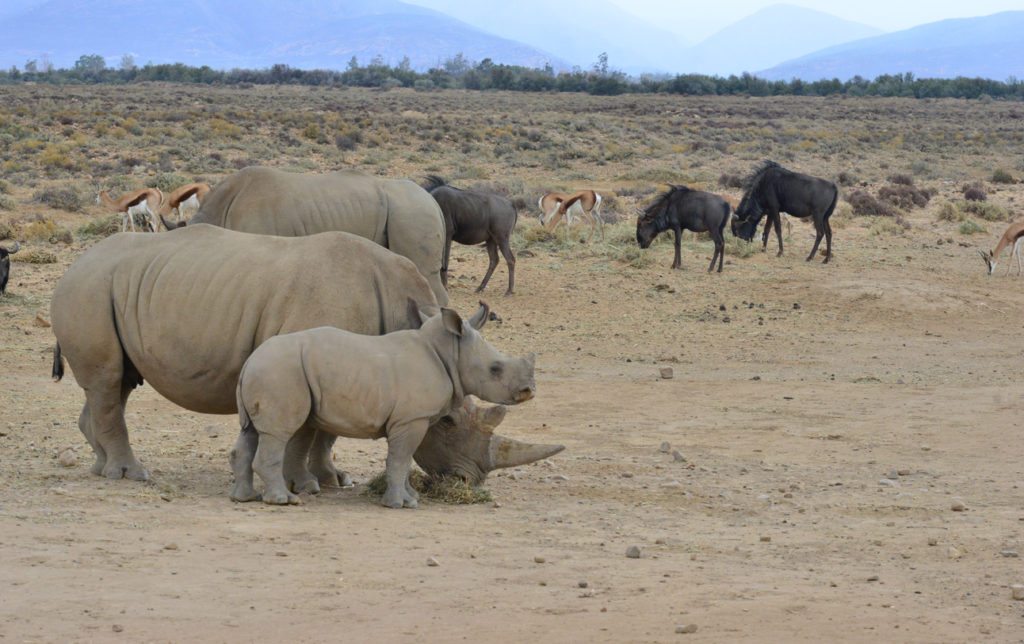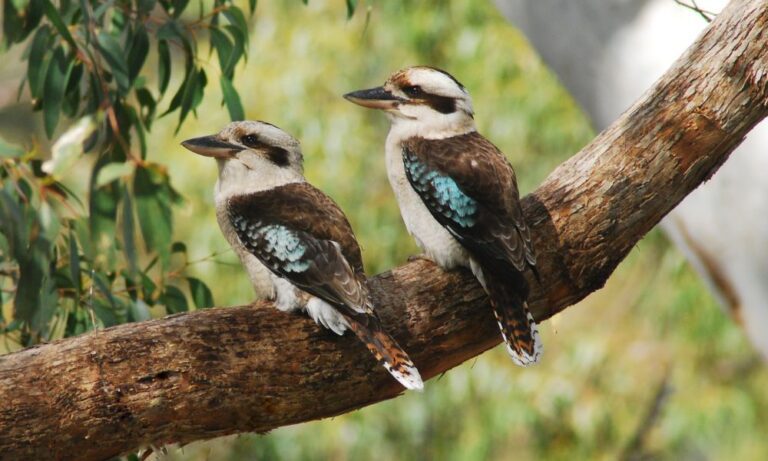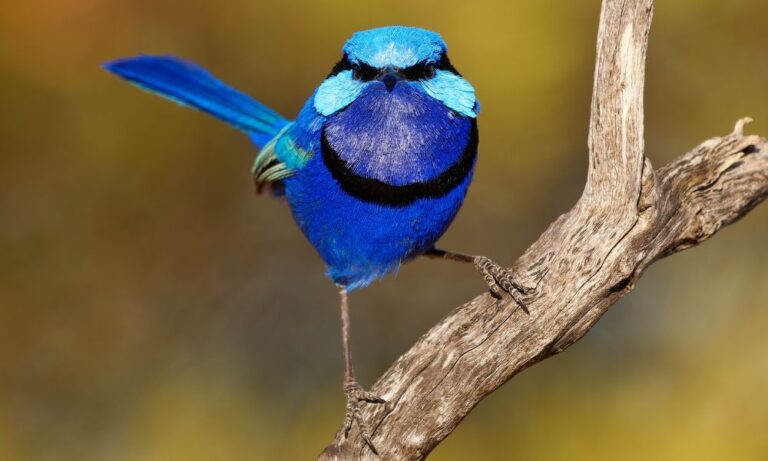In 2016 several black and white rhinoceroses were translocated to the Moremi Game Reserve in Botswana, South Africa. Aided by luxury safari lodge Sanctuary Retreat, the mission aimed to protect and preserve the species, which is one of the most endangered in the world.
Through a tracking program designed to record the growth of the rhino population, Sanctuary Retreat’s Monitoring Assistants Ollie and Kandu have discovered that three rhino calves were born in the last eight weeks. The revelation is exciting news for the rhino population and the worker’s who strive to protect it. “Rhinos typically have a gestation period of between 15 – 17 months, and females don’t usually give birth for the first time until they are around 6.5 – 7 years old,” Kandu explains. “Added to that, the interval between calving is 3 – 4 years. So we expected we might have to wait a lot longer than we have to see any babies born in the Reserve from the rhinos introduced last year.”
To determine whether rhinos can thrive in a different location, Ollie and Kandu must closely study the rhinos’ eating habits and breeding patterns. Before they began work at the 5,000 square kilometers Moremi Game Reserve, the pair trained with the Mombo Rhino Monitoring Team and Botswana’s Anti-Poaching Unit to ensure they were fully equipped for the job.
With further monitoring and assistance, it is hoped that the Moremi Reserve rhino population will continue to grow.
Did you know?
Black rhinos are classified as Critically Endangered by IUCN. Between 1970 and 1990, 96% were lost to poaching. By the early 1990s, the global population had crashed to fewer than 2,500. Today, there are around 4,200 black rhinos in the wild.
Classified as Near Threatened by the IUCN, the population of white rhinos has recovered from fewer than 100 surviving individuals in 1895 to more than 20,000 today, but around 95% of all rhinos poached in South Africa today are white rhinos.
Size comparison: Black and White Rhinos, and humans

For more information, visit: http://www.rhinoconservationbotswana.com/rhino-fact-files







